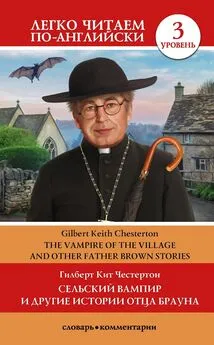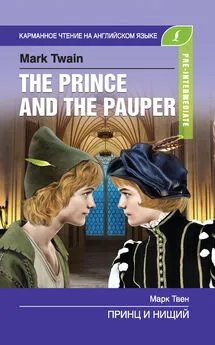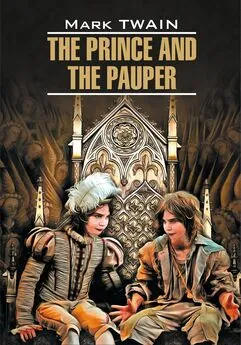Oscar Wilde - The Happy Prince and Ohter Tales
- Название:The Happy Prince and Ohter Tales
- Автор:
- Жанр:
- Издательство:неизвестно
- Год:неизвестен
- ISBN:нет данных
- Рейтинг:
- Избранное:Добавить в избранное
-
Отзывы:
-
Ваша оценка:
Oscar Wilde - The Happy Prince and Ohter Tales краткое содержание
The Happy Prince and Ohter Tales - читать онлайн бесплатно полную версию (весь текст целиком)
Интервал:
Закладка:
fierce [fiəs ] tomb [tu:m ] girdle [gə:dl ] throat [θrəυt ]
So the Nightingale pressed closer against the thorn, and the thorn touched her heart, and a fierce pang of pain shot through her. Bitter, bitter was the pain, and wilder and wilder grew her song, for she sang of the Love that is perfected by Death, of the Love that dies not in the tomb.
And the marvellous rose became crimson, like the rose of the eastern sky. Crimson was the girdle of petals, and crimson as a ruby was the heart.
But the Nightingale’s voice grew fainter, and her little wings began to beat, and a film came over her eyes. Fainter and fainter grew her song, and she felt something choking her in her throat.
Then she gave one last burst of music (затем он издал /одну/ последнюю музыкальную трель: «взрыв музыки»; burst — взрыв, разрыв) . The white Moon heard it (белая Луна услышала ее; to hear (heard)) , and she forgot the dawn (и она забыла о рассвете/заре; to forget (forgot, forgotten)) , and lingered on in the sky (и задержалась на небе) . The red rose heard it (ее услышала /и сама/ красная роза) , and it trembled all over with ecstasy (и вся затрепетала в экстазе/восторге; to tremble — дрожать, трястись; трепетать; all over — всюду; полностью, целиком) , and opened its petals (и раскрыла свои лепестки; to open — открывать, раскрывать) to the cold morning air (/навстречу/ холодному утреннему воздуху) . Echo bore it (эхо отнесло ее /трель/; to bear (bore, born) — переносить, перевозить) to her purple cavern in the hills (к своей багряной пещере в холмах) , and woke the sleeping shepherds (и разбудило спящих пастухов; to wake (woke, waked) — просыпаться, будить) from their dreams (от их снов) . It floated (она пронеслась; to float — плавать; нестись /по течению, по воздуху/) through the reeds of the river (между камышами у реки: «через речные камыши»; through — через, сквозь) , and they carried its message to the sea (и они донесли ее послание морю; to carry — нести, носить; доноситься /о звуке/; message — сообщение, донесение; послание) .
“Look, look (смотри) !” cried the Tree, “the rose is finished now (роза теперь завершена = теперь стала красной) ”; but the Nightingale made no answer (но Соловей не ответил; to make (made) — делать, изготавливать; в сочетании с существительным выражает действие, соответствующее значению существительного; answer — ответ) , for she was lying dead (так как он лежал мертвый; to lie (lay, lain) ) in the long grass (в высокой траве; long — длинный) , with the thorn in her heart (с шипом в сердце) .
burst [bə:st ] linger ['lingə ] ecstasy['ekstəsi ] shepherd['∫epəd]
Then she gave one last burst of music. The white Moon heard it, and she forgot the dawn, and lingered on in the sky. The red rose heard it, and it trembled all over with ecstasy, and opened its petals to the cold morning air. Echo bore it to her purple cavern in the hills, and woke the sleeping shepherds from their dreams. It floated through the reeds of the river, and they carried its message to the sea.
“Look, look!” cried the Tree, “the rose is finished now”; but the Nightingale made no answer, for she was lying dead in the long grass, with the thorn in her heart.
And at noon the Student opened his window (в полдень Студент открыл /свое/ окно) and looked out (и выглянул /в сад/) .
“Why, what a wonderful piece of luck (ба, какое удивительное везение: «редкая удача»; why — зд. междометие — как! ба! /выражает удивление/; piece — кусок, часть, зд.исп. в выражении: piece of luck — удача, luck — судьба, случай; удача, везенье) !” he cried (вскричал он) ; “here is a red rose (вот и красная роза) ! I have never seen any rose like it (я никогда не видел ни одной подобной розы: «ни одной розы, подобной этой»; to see (saw, seen) ) in all my life (за всю свою жизнь) . It is so beautiful (она настолько прекрасна) that I am sure (что я уверен) it has a long Latin name (что у нее длинное латинское название; name — имя, фамилия; название) ”; and he leaned down (и он наклонился = высунулся из окна) and plucked it (и сорвал ее) .
Then he put on his hat (затем он надел /свою/ шляпу; to put on) , and ran up to the Professor’s house (и побежал к дому Профессора; to run (ran, run) ) with the rose in his hand (с розой в руке) .
Latin ['lætin ] pluck [plλk ] professor[prə'fesə ]
And at noon the Student opened his window and looked out.
“Why, what a wonderful piece of luck!” he cried; “here is a red rose! I have never seen any rose like it in all my life. It is so beautiful that I am sure it has a long Latin name”; and he leaned down and plucked it.
Then he put on his hat, and ran up to the Professor’s house with the rose in his hand.
The daughter of the Professor was sitting in the doorway (дочь Профессора сидела у порога: «в дверях»; doorway — вход в помещение, дверной проем) winding blue silk on a reel (наматывая синюю шелковую /нить/ на катушку; to wind — виться, извиваться; наматывать) , and her little dog was lying at her feet (и ее маленькая собачка лежала у ее ног) .
“You said that you would dance with me (Вы сказали, что /вы/ будете танцевать со мной) if I brought you a red rose (если я принесу Вам красную розу; to bring (brought) ),” cried the Student (воскликнул Студент) . “Here is the reddest rose in all the world (вот самая красная роза на всем свете) . You will wear it to-night (вы приколите: «вы наденете» ее сегодня вечером; to wear (wore, worn) — быть одетым, носить /одежду/) next your heart (рядом со своим сердцем) , and as we dance together (и когда мы будем танцевать /вместе/) it will tell you (она расскажет Вам) how I love you (как я люблю Вас) .”
But the girl frowned (но девушка нахмурилась; to frown — хмурить брови, насупиться) .
“I am afraid (боюсь) it will not go with my dress (что она не подойдет к моему платью; to go — идти, ходить, to go with smth. — подходить к чему-либо, гармонировать с чем-либо) ,” she answered (ответила она) ; “and, besides (и, к тому же) , the Chamberlain’s nephew (племянник Гофмейстера) has sent me some real jewels (прислал мне настоящие драгоценности; to send (sent), some — какой-нибудь, некоторый, некоторое количество) , and everybody knows (и каждый знает) that jewels cost far more than flowers (что ювелирные украшения стоят гораздо больше, чем цветы; jewel — драгоценный камень; ювелирная вещь) .”
wind [waind] chamberlain['t∫eimbəlin] jewel['dζu:əl]
The daughter of the Professor was sitting in the doorway winding blue silk on a reel, and her little dog was lying at her feet.
“You said that you would dance with me if I brought you a red rose,” cried the Student. “Here is the reddest rose in all the world. You will wear it to-night next your heart, and as we dance together it will tell you how I love you.”
But the girl frowned.
“I am afraid it will not go with my dress,” she answered; “and, besides, the Chamberlain’s nephew has sent me some real jewels, and everybody knows that jewels cost far more than flowers.”
“Well, upon my word (ну, честное слово) , you are very ungrateful (вы чрезвычайно: «очень» неблагодарны; grateful — благодарный, признательный) ,” said the Student angrily (сказал Студент сердито; angry — сердитый, гневный, раздраженный) ; and he threw the rose into the street (и он бросил розу на землю: «на мостовую»; to throw (threw, thrown), street — улица, мостовая) , where it fell into the gutter (/где/ она упала в колею; to fall (fell, fallen), gutter — желоб, сточная канава) , and a cart-wheel went over it (и по ней проехалось колесо телеги; cart — телега, повозка, wheel — колесо; to go (went, gone) ).
Читать дальшеИнтервал:
Закладка:
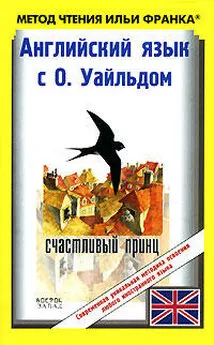
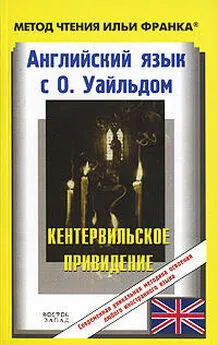
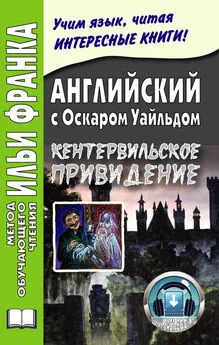
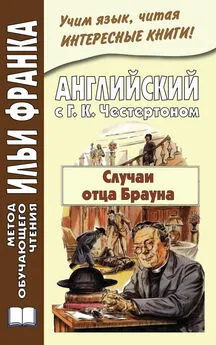
![О Генри - Принцесса и пума [The Princess and the Puma]](/books/1076182/o-genri-princessa-i-puma-the-princess-and-the-pum.webp)
